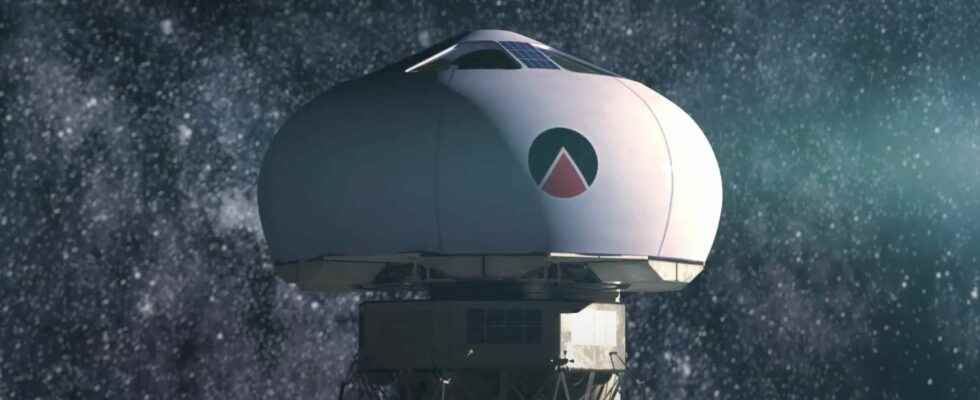They are part of the “French Tech”. Today, a myriad of new start-ups have established themselves in the landscape of the French space industry. Among these, some stand out boldly and offer unusual projects, but which nevertheless interest the institutions. Let’s find them.
You will also be interested
[EN VIDÉO] Artemis: discover the Orion vehicle in video Video-animation of the first unmanned mission of the Orion space vehicle. © ESA
The New Space now presents itself as a part ofecosystem aerospace driven by an original state of mind and offering methodologies that are a little different from those of the major manufacturers that we know well (ArianeGroup, Airbus Defense & Space, Thales Alenia Space, etc.). Some, like Latitudeembark on the construction of micro-rockets, others like Hemeria, U-Space or Anywaves in the construction of nanosatellites or equipment, still others like Kineis or UnseenLabs offer services provided by their constellation. In this whole ecosystem, there are the unclassifiable.
Tourist visions
the space tourism is booming, with New Shepard flights from Blue Origin or Axiom Space orbital flights. In China as in the United States, tourism service projects in space are flourishing, in France too, even if not exactly in space. Indeed, the Toulouse start-up Zephalto offers flights in the stratosphere aboard a ballooncapable of carrying six passengers.
Admittedly, the flight will culminate around 30-40 km altitude, but it will last several hours, unlike the flights of Virgin Galactic or Blue Origin which only last a few minutes. Zephalto claims on the one hand that the public will have more time to admire the bluish halo of our atmosphereand on the other hand that the carbon footprint of such a trip will be neutral, with a ball filled with helium and running onenergy solar. Zephalto approached Cnes because the agency has been an expert in stratospheric balloon flights for decades.
As for the start-up Toucan Spaceshe offers to send one of your familiar objects in the International Space Station, then bring it back to you. Thus, you will be the owner of an object having stayed in the ISS. Toucan Space has already sent objects into the station four times.
To the Moon with Cnes
Cnes launched the incubator TechTheMoon with Nubo. Five start-ups have been selected by Cnes in October 2021, carrying out some crazy projects at a time when human beings are about to return to the Moon. All of these start-ups will find a market on Earth to develop their unusual solutions such as Anyfields which will test the performance of antennas, Métis which will detect astronauts’ spacesuits, or even The Exploration Company who wants to offer a cargo service between the Earth and the Moon.
For its part, the start-up Spartan Space offers to provide lunar habitats or for Martian bases. The EuroHab habitat will be inflatable and mobile. It can also be installed underwater. The habitat would be sent to the Moon from Earth or from the station orbital Gateway, would land on the surface of the Moon and then unfold.
The latest start-up selected by TechTheMoon, Orius Technologies, which offers to develop configurable “cabinets” to grow all types of plants, fruits or vegetables. Thus, astronauts on the Moon would eat something other than freeze-dried food. This concept could be associated for example with the other inflatable lunar module proposed by the start-up Interstellar Labnamed BioPod, whose purpose is to recreate climatic conditions “ ideal for life on Earth and in space “.
Interested in what you just read?
